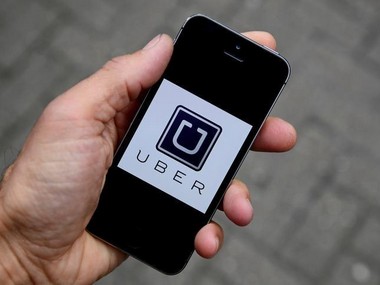“When we look at the challenges for cartel enforcement in the future, one of the biggest things we need to deal with is the risk that automated systems could lead to more effective cartels” - Margrethe Vestgaer, European Commissioner for Competition. The digital economy has transformed the ways businesses are carried out. This has, in turn, fuelled discussions on the competition law implications of such technological innovations. A recent report released by the Vidhi Centre for Legal Policy seeks to study the interplay between such innovations in digital markets and competition law. One such manifestation of such technological developments as indicated in the Vidhi Report are pricing algorithms. Such pricing algorithms are commonly employed by online businesses, particularly in airline, hotel booking and road transport industries, which heavily rely on sophisticated pricing tools to determine and update their prices. For instance, it is common to experience surge pricing at peak hours by cab aggregators. Similarly, airline tickets for certain routes are priced higher than other routes with similar distance. [caption id=“attachment_4209621” align=“alignleft” width=“380”] Representational image. Reuters[/caption] Further, tickets booked on particular dates may be higher as compared to other dates. Such pricing is executed by algorithms which tend to automatically calculate prices based on real-time assessment of demand and supply and specified targets. Needless to mention companies may adopt different mechanisms to design their algorithms. For instance, pricing algorithms in case of airline tickets may use pricing variables like route competition, route distance, seat demand, etc to determine such prices. With the widespread use of pricing algorithms, commentators have raised concerns of possible anti-competitive effects of algorithms. It is argued that such pricing algorithms can facilitate prevailing forms of collusion and also pave ways for businesses to collude in a manner beyond the traditional understanding of ‘agreement’ or ‘meeting of minds’ between competitors, thereby reducing human intervention to the minimum. The competition law concerns associated with such pricing algorithms, which may facilitate collusion between competitors can be appreciated with the help of two case studies. In 1994, the United States Department of Justice (DOJ) settled a case wherein it was alleged that eight airline companies used a jointly owned computerised fare dissemination service to communicate and set collusive airline fares and thereby restrict competition in the airline industry. This system was essentially designed to compile relevant fare information and disseminate such information to the public and even the airline companies themselves. However, several features of the system, including the ability to pre-announce a price increase, enabled the airline companies to float proposals to increase fares, see how their competitors react to the proposals, consider alternative proposals, and identify a mutually acceptable fare increase. Extending this example to algorithmic pricing, one can easily understand how such algorithms may provide a means to competing firms to give effect to a collusive agreement. For instance, in 2015, the DOJ prosecuted David Topkins, an online poster retailer for conspiring with competitors to fix the prices of certain posters sold through Amazon marketplace. David Topkins and other conspirators designed and shared details of dynamic pricing algorithms, which were programmed to act in accordance with their agreement. Notably, the competition law implications of such pricing algorithms have so far been limited to disputes in cases where such algorithms were used to execute a pre-existing agreement between competitors to fix prices. However, several commentators also argue that with time such algorithms are able to engage in autonomous price determination with minimum or no human involvement. In this regard, it is worthwhile to recall how earlier this year Libratus, a machine learning program developed by Carnegie Mellon University won unprecedented amounts against professional poker players in a complex version of poker. Interestingly, while Libratus was initially programmed with a basic knowledge of poker rules, over a period of time, it started developing strategies for defeating its opponents without any human intervention. Therefore, with the success of Libratus, one can only imagine how algorithms may use complex reasoning and make autonomous decisions without any human involvement to achieve its programmed objective. In light of these developments, the European Commission and other national competition authorities have started to closely review these pricing algorithms to determine their implications under competition law. The need to review the competition framework emerges from the fact that existing legal framework is premised on human intent and action, which may be inadequate when dealing with algorithms which autonomously (without any human involvement) determine their pricing strategies as discussed above. Therefore, competition authorities must be prepared to look beyond the traditional forms of anti-competitive agreements and practices as envisaged under the existing law. The extent of accountability for businesses employing such algorithms is still an open question.
For now, most competition authorities and regulators see this as a future concern. However, as OECD notes that as pricing algorithms become more autonomous, finding ways to prevent collusion between these self-learning algorithms may become one of the biggest challenges of competition law enforcers.
Therefore, as the Vidhi Report notes that while the Competition Commission of India (CCI) has been careful to avoid any hasty intervention in the technology market, emerging issues necessitate that CCI adopts a dynamic approach to adapt to these self-learning algorithms. Any framework to regulate such algorithms must be substantiated by market conduct studies adopted in other jurisdictions like UK, Singapore, France, etc. Further, CCI will have to ensure that in dealing with such pricing algorithms a fine balance is maintained between consumer protection and promotion of competition and innovation. The author is a Research Fellow at Vidhi Centre for Legal Policy. The views are personal.


)

)
)
)
)
)
)
)
)



